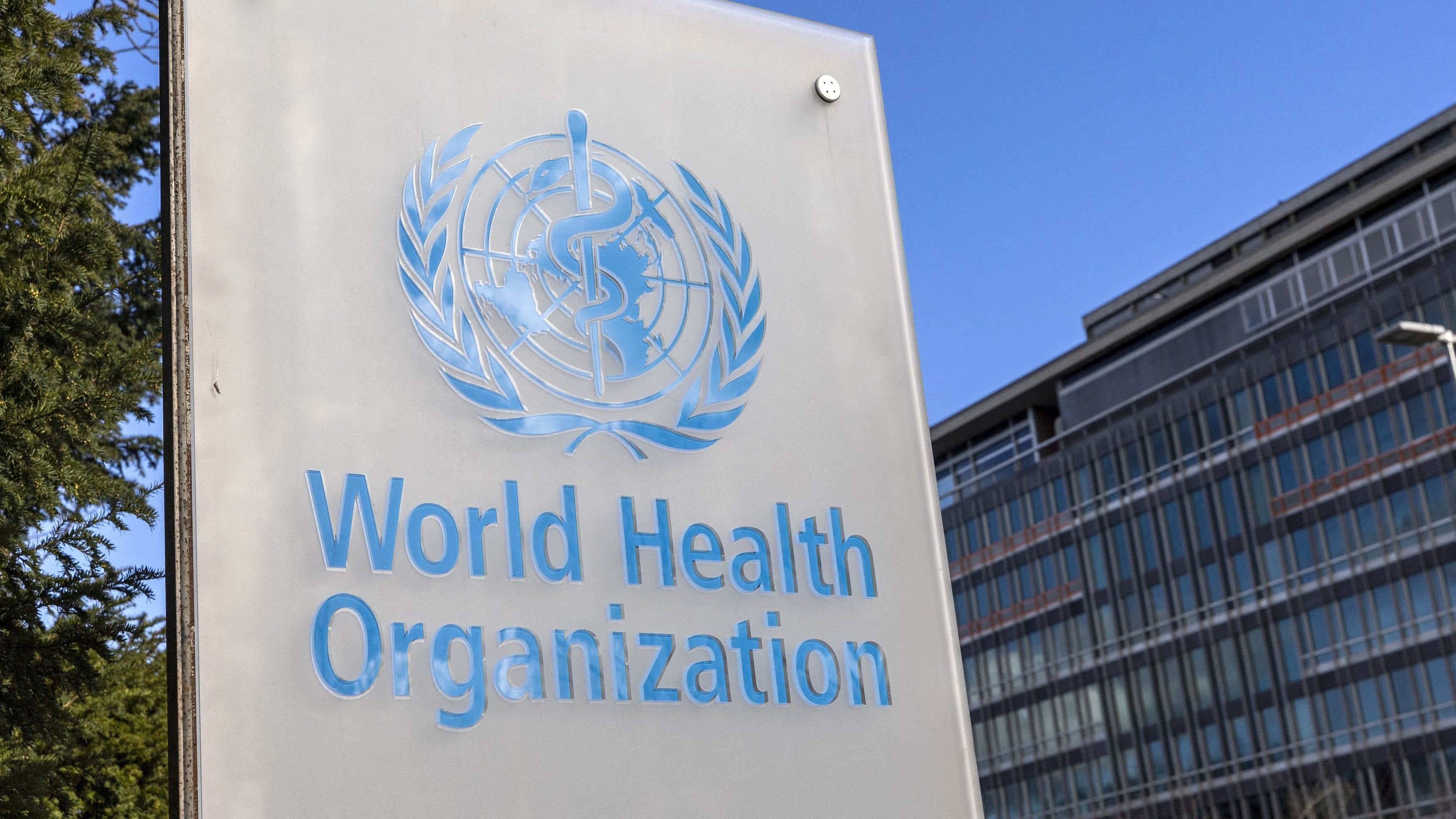
The World Health Organisation (WHO) logo is seen near its headquarters in Geneva, Switzerland
Credit: Reuters File Photo
Geneva: India has committed USD 85 million over 10 years to support the World Health Organisation’s Global Traditional Medicine Centre in Gujarat for a cross-sectoral programme to strengthen the evidence base for traditional medicine.
Tedros Adhanom Ghebreyesus, World Health Organisation’s Director General on Thursday thanked India’s “strong commitment and investment” in the WHO's work on traditional medicine.
The USD 85 million commitment was formalised at a signing ceremony here on Wednesday, a statement from WHO said on Thursday and acknowledged that integration of traditional practice and knowledge is critical to achieving health for all.
While laying the foundation stone for the WHO Global Traditional Medicine Centre at its global headquarters at Jamnagar in India on April 19, 2022, Prime Minister Narendra Modi said the Centre “is recognition of India's contribution and potential in this field.
The WHO statement said India’s 10-year financial contribution – from 2022 to 2032 – will strengthen the evidence base for traditional medicine by providing data and evidence on traditional medicine policies, practice, products, and public use.
The WHO-India donor agreement is part of a USD 250 million investment from India in support of the establishment of the WHO Global Centre of Traditional Medicine in 2022, which includes financial support for the work plan of the Centre, interim premises and a new building, the statement said.
Ghebreyesus, the WHO DG, in a post on X, said: “Thank you, #India, for your strong commitment and investment in @WHO’s work on traditional medicine” and used the hashtag #HealthForAll, an avowed aim of the Centre.
Pointing out that worldwide, traditional medicine is used by billions of people for their health and well-being, WHO said India’s support will “scale up WHO’s capacities on traditional medicine across technical divisions and regions in the spirit of global collaboration and solidarity.” Part of this substantial contribution from India will also be included in WHO’s Investment Round to resource WHO’s core work during 2025–2028, the statement said.
“Traditional medicine, supported within national health systems, can allow us to reach those most often left behind. Integration of traditional practice and knowledge is critical to achieving health for all,” said Dr Bruce Aylward, Assistant Director-General of the Universal Health Coverage and Life Course division of WHO.
Ambassador Arindam Bagchi, Permanent Representative of India to the UN and other International Organisations in Geneva, said: “India remains committed to supporting WHO in its work to strengthen traditional medicine systems globally for achieving universal health coverage and serving the entire humanity, especially through this Global Centre in Jamnagar, which would help focus these efforts to benefit all Member States.” India’s Secretary of the Ministry of Ayush, Rajesh Kotech too was present on the occasion.